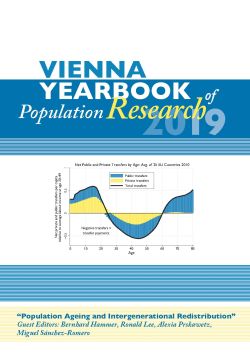
Vienna Yearbook of Population Research 2019, pp. 099-120, 2019/12/02
Special issue on Population ageing and intergenerational redistribution

Population ageing is making it increasingly diffcult for countries to sustain their current levels social welfare transfers from the economically active population to the dependent elderly. To meet this challenge, the Swedish government has implemented various reforms since the 1990s aimed at reducing incentives to take early retirement. However, a critical question has emerged in response to these reforms: namely, whether members of certain socially and demographically disadvantaged groups will, in practice, be able to work longer. This paper provides a detailed overview of retirement trends in Sweden, disaggregated by educational attainment, health status, and country of birth. Our results show that the growth pattern in the average effective retirement age since the mid-1990s was shared by individuals regardless of their educational level, health status, or country of birth. This shared growth pattern suggests that it is possible to extend the working lives of all groups of individuals, regardless of their socio-economic and demographic characteristics.